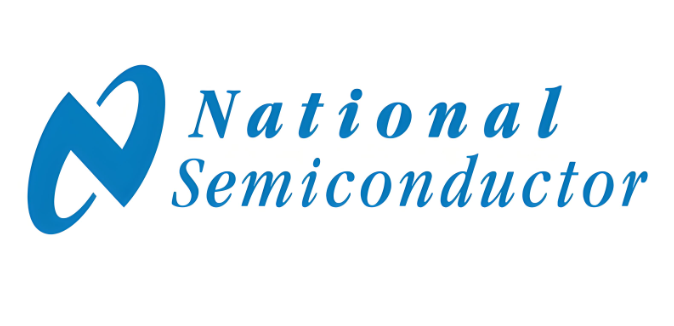
National Semiconductor, a pioneering force in the semiconductor industry, operated as an independent company from 1959 until its acquisition by Texas Instruments (TI) in 2011. Renowned for its expertise in analog and mixed-signal semiconductors, the company played a pivotal role in shaping modern electronics, with innovations that spanned consumer devices, industrial systems, and automotive technology.
Founded in 1959 in Santa Clara, California, by a group of engineers including Robert Noyce (a co-inventor of the integrated circuit), National Semiconductor emerged during the early days of the semiconductor revolution. Initially focused on producing transistors and diodes, the company quickly expanded into integrated circuits (ICs), establishing itself as a leader in analog semiconductor design.
Throughout the 1970s and 1980s, National Semiconductor grew through strategic acquisitions and technological breakthroughs. It gained recognition for developing high-performance analog chips, voltage regulators, and data converters—components critical for stabilizing power in electronic devices and converting analog signals (e.g., sound, light) into digital data.
National Semiconductor’s product portfolio centered on analog and mixed-signal solutions, with a focus on efficiency, reliability, and integration:
-
Analog ICs: Voltage regulators, amplifiers, and comparators that enabled stable power management in devices ranging from computers to mobile phones.
-
Data Converters: Analog-to-digital (ADC) and digital-to-analog (DAC) converters, essential for processing real-world signals in medical equipment, industrial sensors, and communication systems.
-
Interface Solutions: Chips facilitating communication between different electronic components, including USB controllers and network interface ICs.
-
Power Management ICs (PMICs): Optimized power distribution for portable devices, reducing energy consumption and extending battery life.
-
Automotive Electronics: AEC-Q100 qualified ICs for vehicle systems, including engine control units (ECUs), infotainment, and safety systems, designed to withstand harsh automotive environments.
National Semiconductor’s innovations had a profound impact on multiple sectors:
-
Consumer Electronics: Its power management chips were integral to early personal computers, laptops, and digital cameras, enabling smaller, more efficient devices.
-
Telecommunications: The company’s analog components supported the growth of cellular networks, with ICs used in base stations and mobile handsets during the transition from 2G to 3G technology.
-
Industrial Automation: Robust sensors and control ICs improved precision in manufacturing equipment, robotics, and energy management systems.
-
Medical Devices: High-precision data converters and low-power ICs powered diagnostic tools, patient monitors, and portable medical devices, enhancing healthcare accessibility.
In 2011, Texas Instruments (TI) acquired National Semiconductor for approximately $6.5 billion, a move aimed at strengthening TI’s position in the analog semiconductor market. The acquisition integrated National Semiconductor’s expertise in power management and analog design with TI’s global reach, creating a more comprehensive portfolio of analog solutions.
Post-acquisition, many of National Semiconductor’s iconic products—such as the LM-series voltage regulators and LTC (Linear Technology Corporation, a later subsidiary) power management ICs—were integrated into TI’s lineup, ensuring continuity for customers while driving further innovation in energy-efficient electronics.
Though no longer an independent entity, National Semiconductor’s legacy endures through its contributions to analog semiconductor design. Its focus on power efficiency, reliability, and miniaturization laid the groundwork for modern electronics, from smartphones to renewable energy systems. Today, Texas Instruments continues to build on this legacy, leveraging National Semiconductor’s technologies to address emerging challenges in IoT, automotive electrification, and sustainable energy.
Keywords: National Semiconductor, Texas Instruments acquisition, analog semiconductors, power management ICs, LM-series regulators, LTC technology, semiconductor history, automotive electronics.
